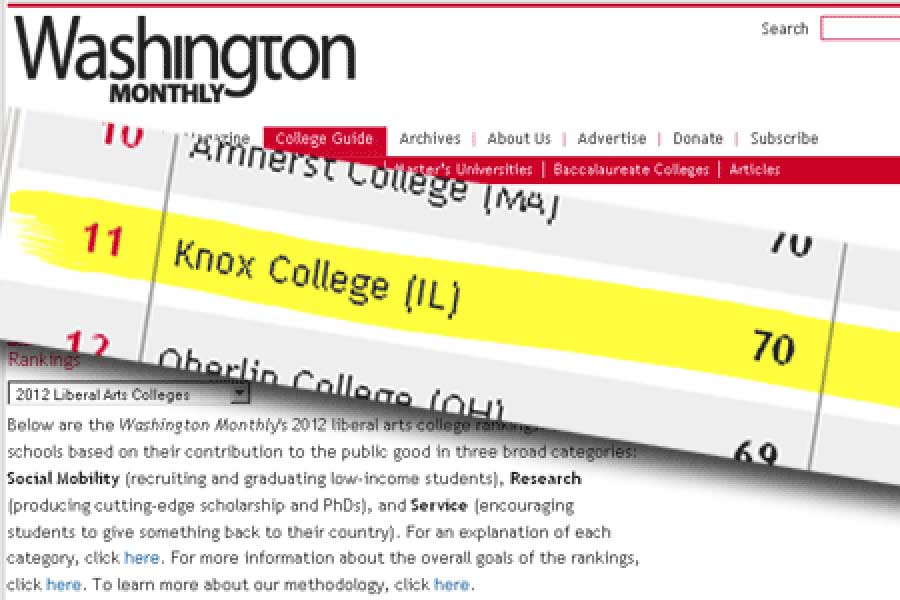

Knox Ranked Among Top Colleges in Service to Public Good
Washington Monthly gathers data on community service, social mobility, research
Knox College is one of the top colleges in the nation, in a ranking that examines schools based on their "contribution to public good."
Released in the September-October issue of Washington Monthly magazine and the magazine's website, the rankings place Knox 11th among liberal arts colleges in the nation, according to scores in three areas: service, social mobility, research.
The service score is designed to measure the extent that colleges are "encouraging students to give something back to their country." It includes graduates who enter the Peace Corps and the college's support for community service.
- Days of Service launched in the spring of 2012 and expanded to include new student orientation in the fall of 2012
- Center for Community Service
Knox College Peace Corps Program- Feature: former Knox President joins Peace Corps
- Campus speakers promote Peace Corps Service
The social mobility score looks at Knox's commitment to recruiting and graduating low-income students.
- Gale Scholars Program increases access for local students
- McNair Program promotes academic careers to underrepresented students
- TRIO Achievement Program offers academic support
The research ranking includes both funds for academic research on campus and the success of Knox graduates in earning PhDs, the academic degree that requires original research in the student's field of study.
- Vovis Center for Research and Advanced Study
- Support for student research through College Honors and other programs in every academic area
Washington Monthly explains its rankings:
"Unlike U.S. News and World Report and similar guides, this one asks not what colleges can do for you, but what colleges are doing for the country. Are they educating low-income students, or just catering to the affluent? Are they improving the quality of their teaching, or ducking accountability for it? Are they trying to become more productive-and if so, why is average tuition rising faster than health care costs? Every year we lavish billions of tax dollars and other public benefits on institutions of higher learning. This guide asks: Are we getting the most for our money?"
Published on September 21, 2012

